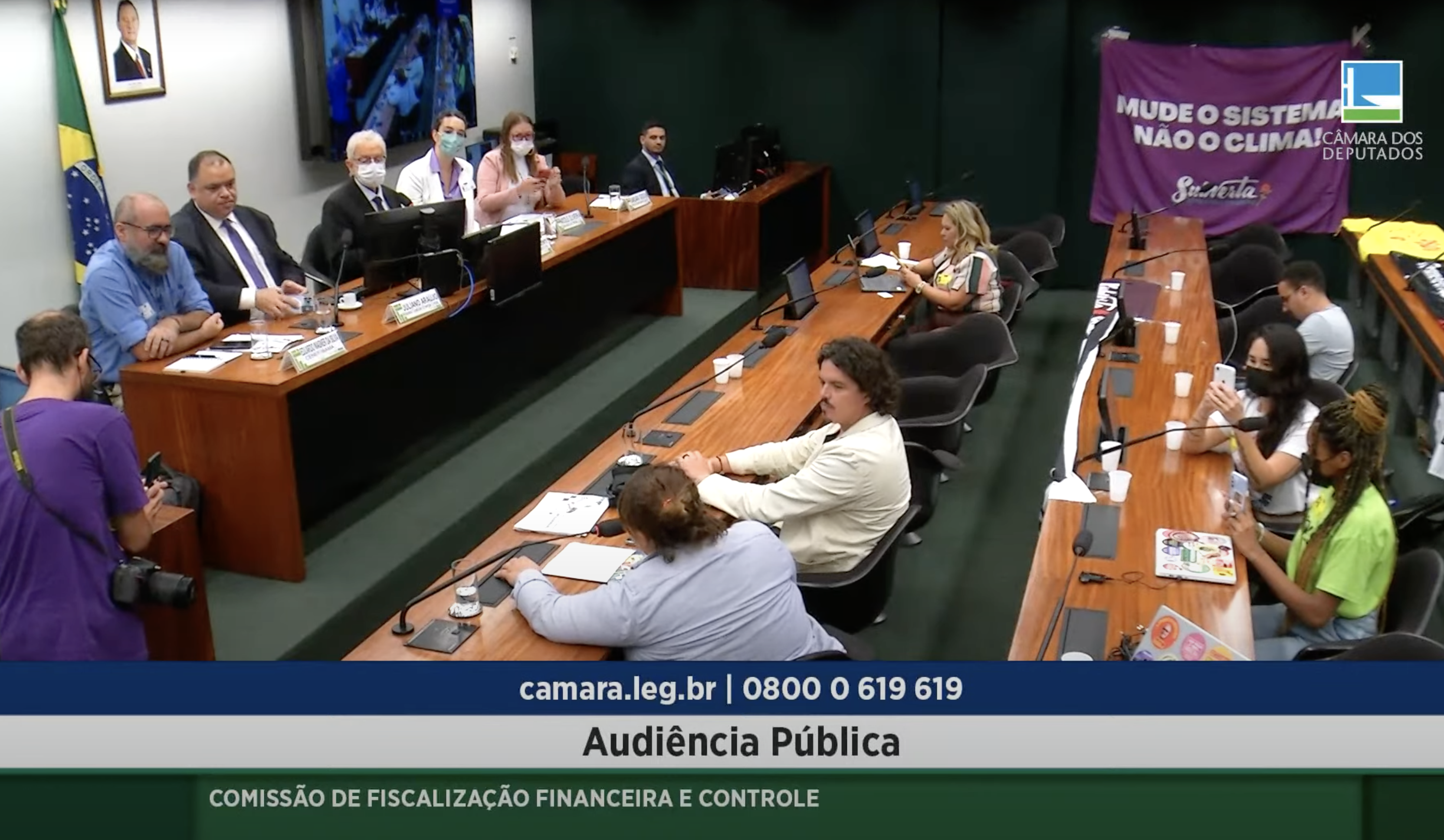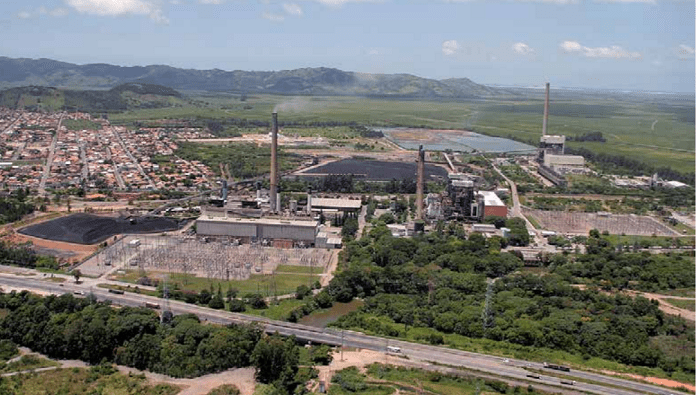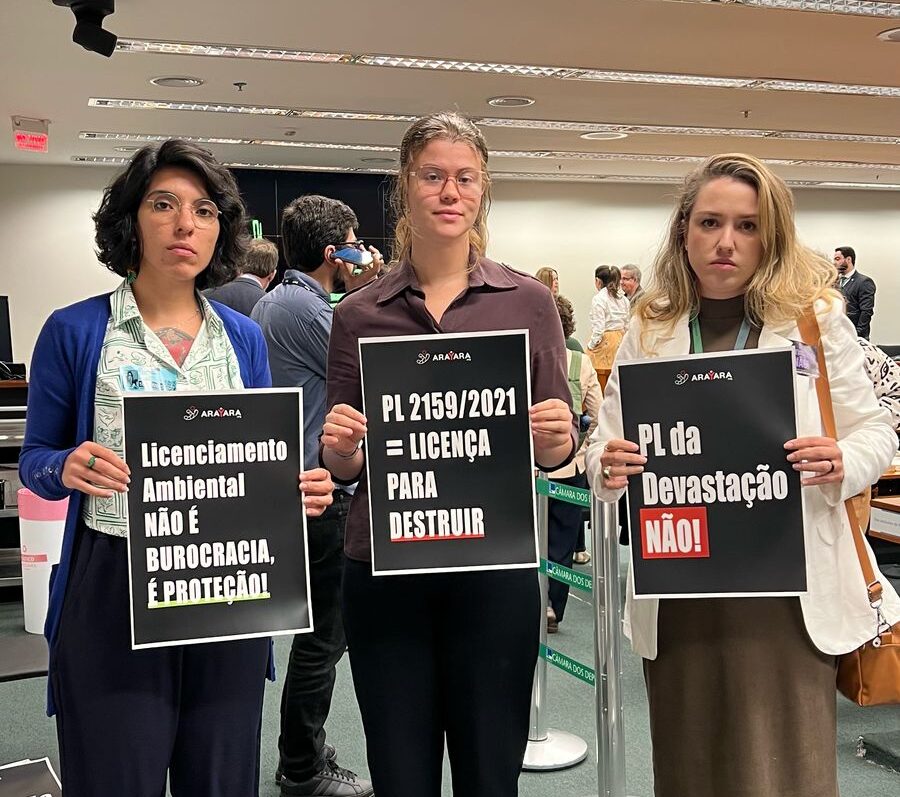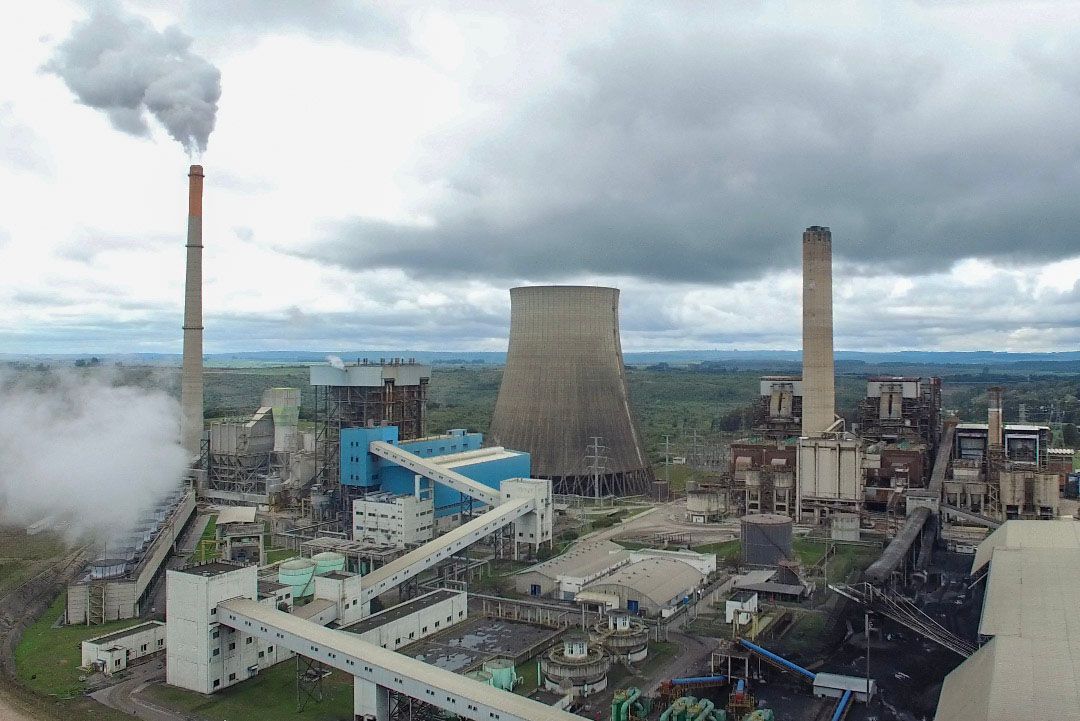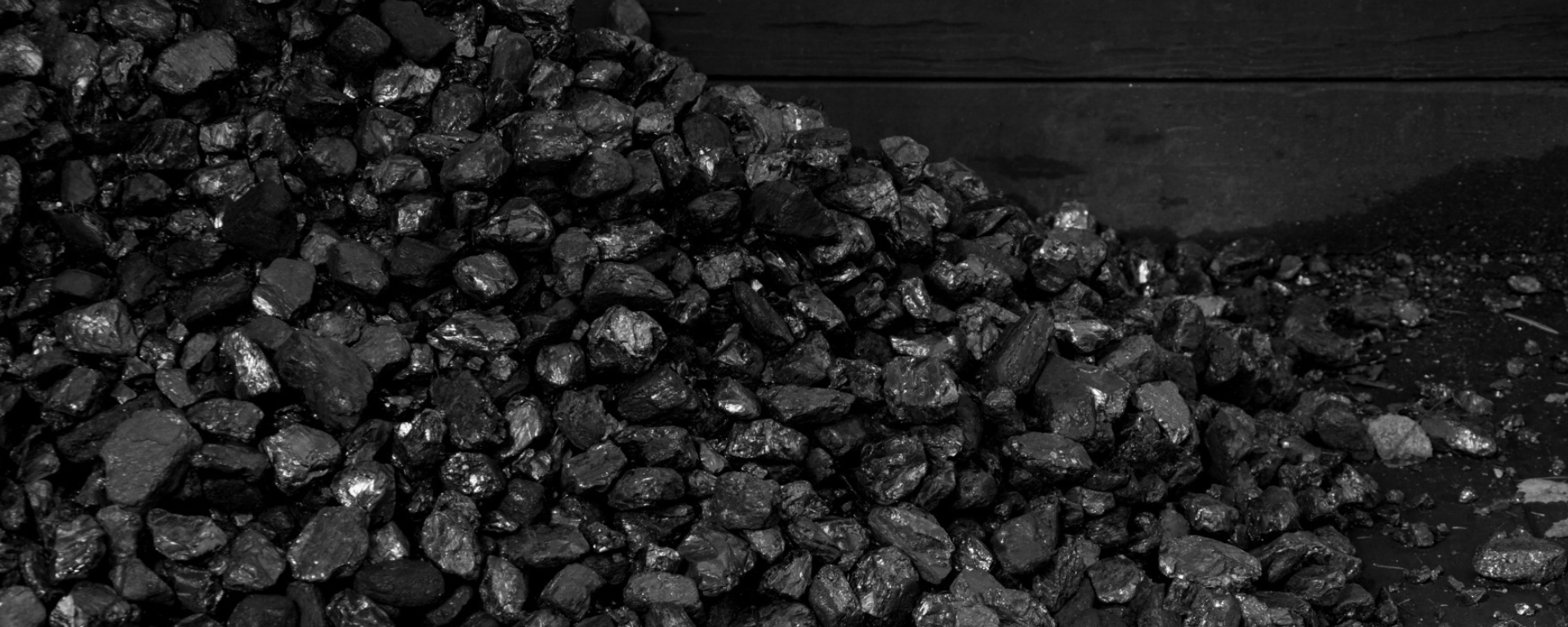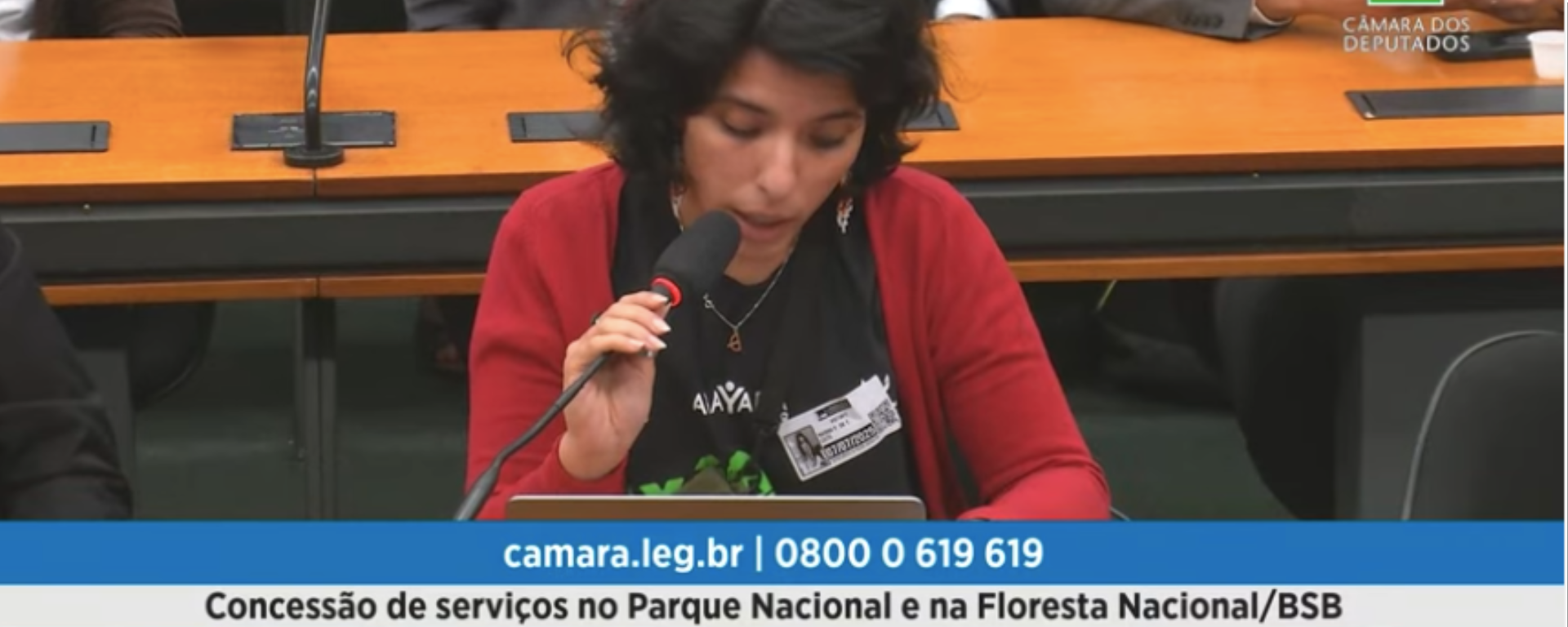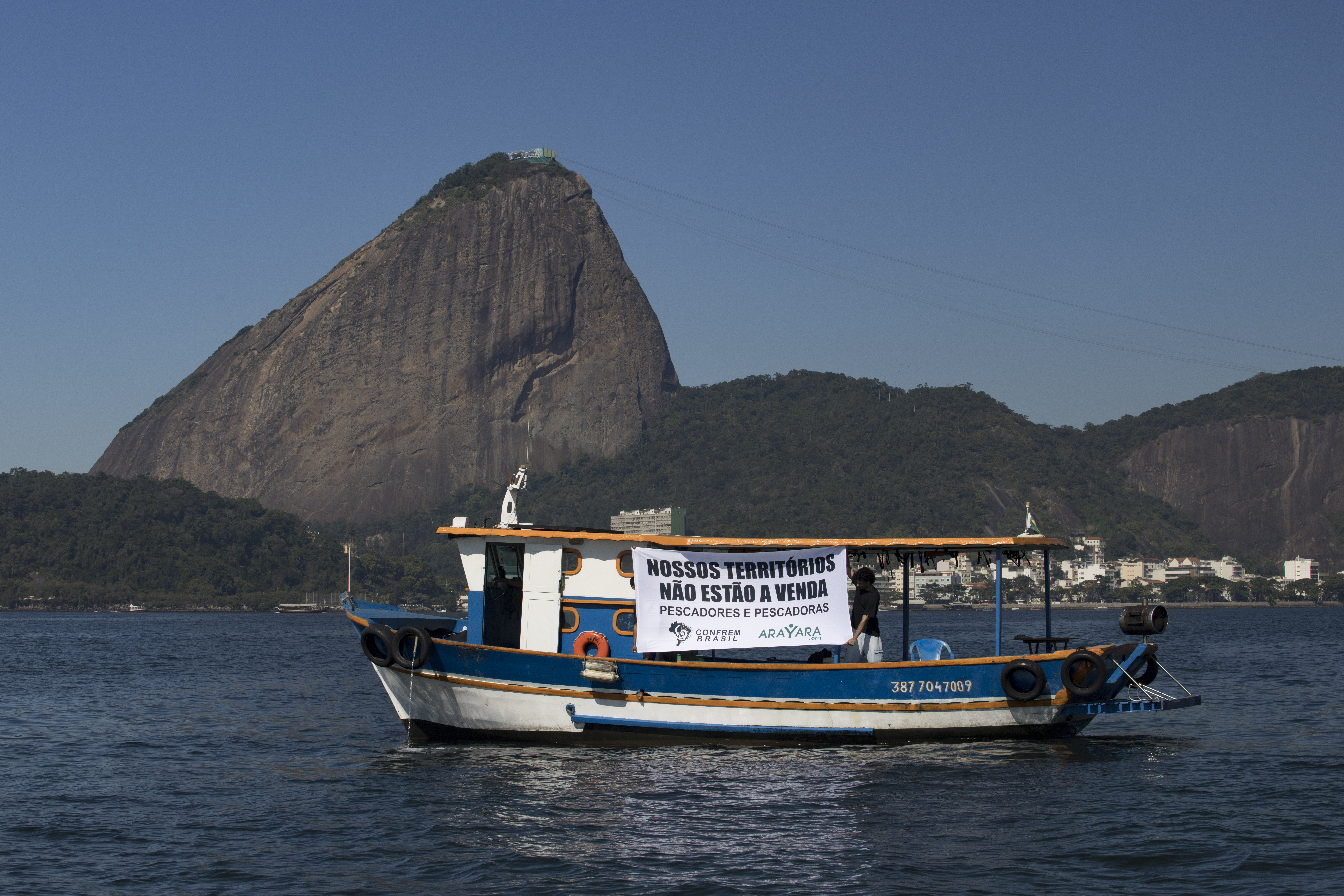Public hearing in the House of Representatives addresses the installation of large-scale gas-fired plant and socio-environmental impact
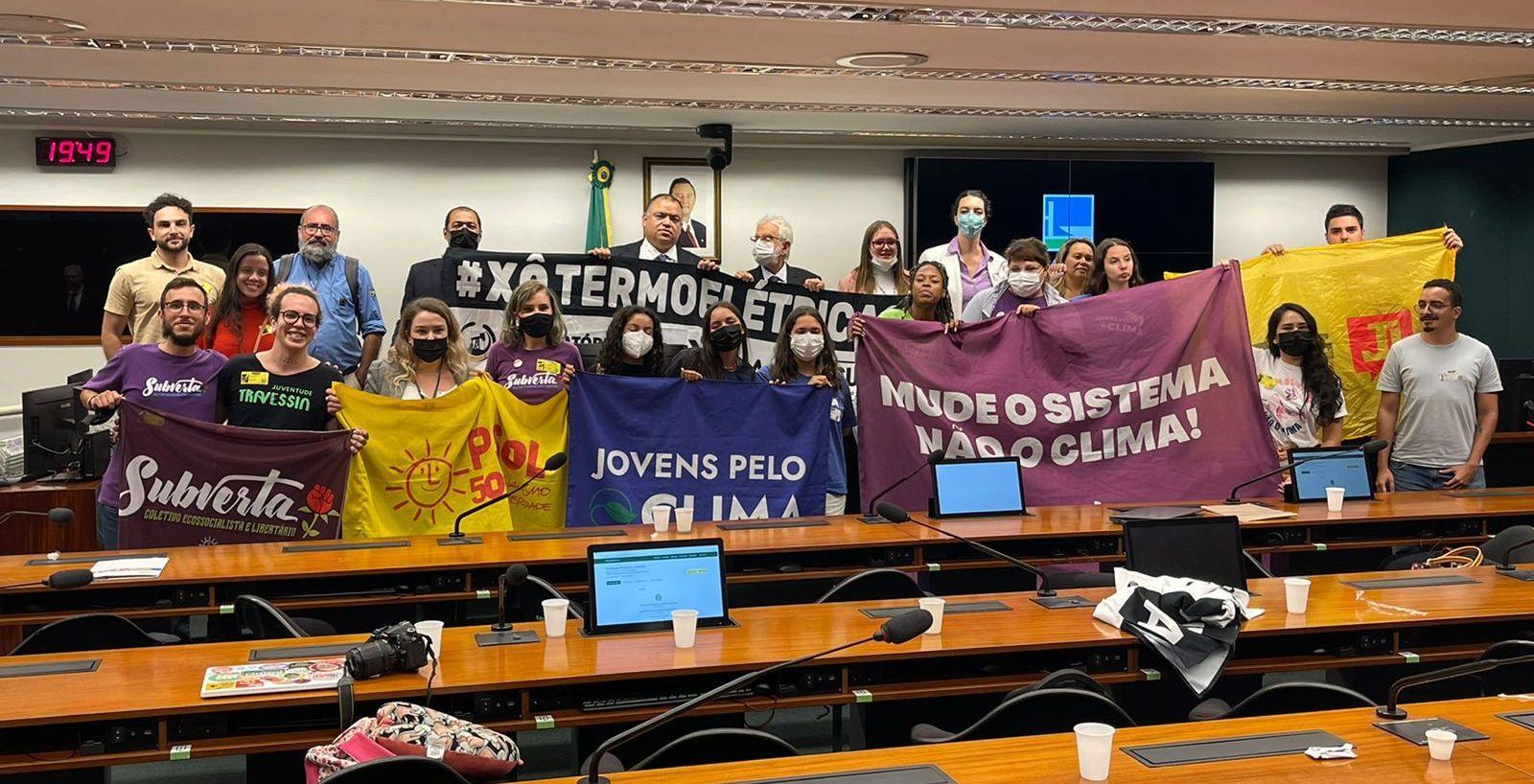
Clean and accessible energy was a collective request from technicians, environmentalists, civil society organizations, parliamentarians, and youth, on Tuesday (29), in the Chamber of Deputies in Brasilia, during a public hearing promoted by the Financial Oversight and Control Commission on the installation of a 1.7 GW gas-fired power plant in the municipality of Caçapava, a city located between São José dos Campos and Taubaté, in the Paraíba Valley in the state of São Paulo.
Classified as the largest thermoelectric power plant in Brazil, the project intends to be installed in an area of 15,000 hectares, and, per day, burn a volume of around 6 million m³ of gas and more than 2,400 m³ of water, taken from the same source that supplies water to the population. With this, the Vale do Paraíba region enters the map of the expansion of fossil fuel burning in Brazil, advancing in greenhouse gas emissions (GHG), in the decade in which they should be reduced, given the global climate crisis and international commitments signed by the country as the Paris Agreement.
The hearing was conducted by the federal deputy Ivan Valente (PSOL) and counted with the participation of the town councilor of Caçapava, Dandara Gissoni (PSD), the federal deputy Talíria Petrone (PSOL), the engineer Eduardo Wagner da Silva, energy environmental licensing coordinator of CENEF – IBAMA, PhD Wilson Cabral from the Instituto Tecnológico de Aeronáutica – ITA, Sullivan Moraes Santos from the NGO EcoVital, Marcos José de Abreu (Marquito), elected State Deputy from Santa Catarina state, Nicole de Oliveira and Juliano Bueno de Araújo, both representing the ARAYARA International Institute, OPG – Oil and Gas Observatory and Clean Energy Coalition, as well as registrants from the audience.
Federal Deputy Ivan Valente began the hearing by contextualizing the need for the hearing, given the lack of transparency in which the project is being processed and the great concern of the population with the impacts that will be caused. He mentioned that the hearing should also have taken place in the Environment Commission of the House of Representatives, but this commission is currently “run by people who deserve to be in the Commission of Environmental Destruction”. The deputy also highlighted the absence of the mayor of Caçapava, Pétala Lacerda, who was invited and did not attend the hearing, nor did she send a representative from the municipal executive.
“Those who know Vale do Paraíba know that the cities located there are in a valley where two mountainous regions are placed and that the dispersion of pollutants is something very difficult in this process. Besides being a region saturated by heavy industries, by refineries, lead companies, and so many others, besides other exploitations such as mining in the Paraíba River valley”, pointed out the deputy.
He also remembered the “jabuti” inserted in the privatization of Eletrobrás, which he classified as criminal “because behind the gas lobby there are not only thermoelectric plants, but also pipelines, terminals and many other issues that have a huge environmental impact”.
The councilwoman from Caçapava, Dandara Gissoni, elaborated her speech about the city’s problems and how she found out about the thermoelectric plant and the fight until the approval of a law that forbids new thermoelectric plants in the city, but doesn’t interfere in this specific one, which has already started the process.
Dandara explains that even though she was mayor of the city at the time of the beginning of the licensing process for the plant, she didn’t learn about it from there, it was through an impact study that she went to the local NGO EcoVital, of which she is a volunteer. “This company, in which it looked for the city of Caçapava, looked for other cities in the Vale do Paraíba, and all the cities denied it. By the way, this is the sixth attempt to install thermoelectric plants in Vale do Paraíba, all of them failed. Why? Because the population fought, and had the support of environmental organizations,” said Dandara. “We are in favor of the businessman, we want the industries there, but the good ones, the ones that are going to bring, not only jobs for our public, for our population, that are going to bring budget to the municipality, but that are also companies, that are industries, that are not going to damage (…) it is not true the number of jobs generated, according to the person in charge of the company where I was present”, she concluded.
Engineer Eduardo Wagner, environmental licensing coordinator for nuclear, thermal, and wind energy at IBAMA, talked about the environmental licensing process for thermoelectric plants of this size and gave a history of the undertaking called UTE São Paulo at IBAMA, which is currently awaiting the presentation of the EIA-RIMA by the entrepreneur.
“We have not had an expressive policy in relation to this”, said Wagner about the thermal projects that arrive at IBAMA and put pressure on the technicians. He stressed the importance of the debate prior to licensing and defended ministerial policies to define criteria for emissions, abatement, and compensation of greenhouse gas emissions, given the NDCs to be fulfilled by Brazil, and cited the need for strategic environmental assessment for energy generation. “If you have a strategic environmental assessment or other similar instrument carried out beforehand, you solve 50% of the problems that end up in the environmental licensing process,” said the coordinator.
A large plant like this one generates a series of local socio-environmental impacts, such as the growth of social and economic inequalities, health impacts, especially in a valley environment with few winds to disperse the pollutants, in addition to planetary impacts with the increase in greenhouse gas emissions.
“Climate change, they aggravate the country’s environmental and energy racism, because it is the peripheral and traditional communities that are the most impacted by climate change,” highlighted Nicole de Oliveira, director of ARAYARA.ORG.
In her presentation, Nicole highlighted the fossil advance in Brazil that foresees “74 new gas-fired thermoelectric plants being planned, 19 new LNG terminals for liquefied natural gas, 2040 new oil and gas blocks in permanent supply, and 9. 286 km of gas pipelines, which if we were to do this many kilometers in a straight line, we would cross from Rio de Janeiro to Paris,” as well as examples of thermal plants contracted by the Simplified Competitive Process (PCS) and the 12 gas projects planned for the region of Macaé-RJ, which already suffers from water shortages.
“Gas energy and fossil energy, it has taken a big space in our matrix and has reduced the participation of hydroelectric energy, but it has also dehydrated solar and wind generation”. She also remembered that Brazil is the fourth country in the world in oil and gas production growth, a worrisome data, contrary to what the IPCC – Intergovernmental Panel on Climate Change – studies warns, in which we need to be reducing fossil exploration in this decade, instead of increasing it.
“When we talk about natural gas, many people believe that it is a good gas, that it doesn’t pollute, no, it doesn’t generate any type of damage to health, but in fact it is a non-renewable fuel that contributes to climate change in a significant way”, in another moment she mentions some consequences: “it offers a great atmospheric pollution, water pollution and high water consumption, heavy metal emission and respiratory diseases”. Nicole also mentions the problem of the cost of this type of energy in the population’s pocket, which is more expensive than clean energy.
Among the recommendations made by the representative of ARAYARA.ORG, OPG and the Clean Energy Coalition are: a bill prohibiting the installation of this particular thermoelectric plant and the issuing of permits for thermoelectric developments, whether they are natural gas, oil or coal in Caçapava; that the Commission send to Aneel a request for a calculation of greenhouse gas emissions and a mitigation plan to achieve the NDCs, because 1. 7 GW of gas cannot be installed without this calculation; considering that the water basin of the Vale do Paraíba already has a large preferential consumption for humans and that the river is supplying the Cantareira System, it was recommended that Cetesb and Ibama no longer license thermoelectric enterprises with large water consumption in that location; and, finally, that the deputy propose a bill requiring strategic environmental analysis and broad social discussion before granting thermoelectric concessions.
Professor Wilson Cabral, researcher and professor at ITA (Aeronautics Technological Institute), called attention to air quality and how greenhouse gases, generated by thermoelectric plants, impact people’s health “the WHO estimates that the degradation of air quality can produce 7 million deaths per year, that is, an improvement in air quality avoids death and prevents morbidity”. Wilson cited Brazil’s commitment to the NDCs, the consolidated technological stagnation of gas-fired thermal plants, with imported supplies, and the low number of workers for the operation: “the projection for this particular thermal plant is around 40 direct jobs”.
The ITA professor went over essential technical information about the high consumption of water, and especially of polluting materials, “every day science is discovering harmful effects of thermoelectric power plant activities, especially activities that pollute the air”, and continues after mentioning the pollutants in detail “when we breathe this, it practically deteriorates the mucosa, and then we have all the problems associated with health through respiratory and cardiac issues”. In addition, he exposed data from a USP study that concluded that a 10% increase in emissions over 20 years could result in 64,000 premature deaths, 65,000 chronic diseases, and 37 million work absences.
Sullivan Moraes of the NGO Eco Vital participated in the hearing telling about how he lost his peace of mind after a visit from sociologists doing socioeconomic impact research for the thermoelectric plant. Sullivan reiterated the struggle for access to information about the project and the local characteristics, totally inadequate for a thermoelectric plant, in addition to denouncing the ongoing decisions “we are also anticipating this maneuver to take it away from IBAMA and take it (environmental licensing) to Cetesb here in São Paulo, due to the election results. We know very well who is behind all this as well. And this might actually happen, right? We understand today that no matter how many technical arguments we may have, no matter how brilliant specialists in the area may come to contest this, the decision is purely political,” he concludes.
“Imagine that there is a 156% increase in the electricity bill. This means an increase in energy racism, and an increase in environmental racism. Why? Because the thermal plant is installed in cities where there is already a fragility of licensing or where there is such a movement that makes it viable”, exposes Juliano Bueno de Araújo, technical director of ARAYARA.ORG, OPG and Clean Energy Coalition. In his speech he reiterates the concerns with the high cost of gas thermoelectric plants, the expansion of fossil-based energy generation, the use of water, and atmospheric pollutants regarding their emissions and problems related to the population’s health: “this will mean that the population that already has a serious health problem today due to respiratory issues, due to a series of other contaminants that this asserts and, therefore, we have to deal with people’s lives, with the quality of life, with the opportunity of people’s lives, with due care”.
Federal Deputy Taliria Petrone made an incisive speech about the new horizons for Brazil’s environmental policy: “everyone who is here quickly agreed that this is a national debate. I think that a lot has already been said technically about the project, but it is necessary that we understand that we are making a turn. It has been four years of destruction, of strengthening, of a predatory development model, against the horizon of living well. But this time needs to be truly over,” she reiterated and mentioned data on climate change mitigation, speaking of the harmful role of thermoelectric plants.
“In a scenario in which in a country where everything you plant gives, but if you have changes in rainfall, you have the production of food totally altered. So we need to change this model. Contrary to what people say, the idea that thermoelectric plants can save the country in a water crisis scenario is false. Thermoelectric plants are causes, not solutions. They are causes of extremes. One of the causes of the climate systems of which the water crises are consequences”.
The state deputy elected by Santa Catarina, Marcos José de Abreu (Marquito), was present at the audience, speaking of the importance of country-city relations, decentralized generation and fair transition, “we are going to move towards this direction now, starting next year, in the Legislative Assembly of Santa Catarina (?) to discuss the deep environmental issue, in the light of environmental justice, social justice”.
A resident of Caçapava, Jen Harmbacher asks the panel’s representatives “why fossil fuels? We are living the climate crisis in an unequal way, radicalized people, indigenous and traditional communities are the ones who suffer most the working class. And I, the population of Caçapava, who was born and have had asthma since childhood. People in my family who suffer from respiratory crises and I’m here with bronchitis” says a participant of the Subverta movement, mainly because of the imminent worsening of his health due to the power plant project.
Cássio Carvalho, talked about a study recently published by the Institute for Socioeconomic Studies INESC, of which he is a member, showing that only in 2021, R$118 billion were destined to the expansion of fossil fuels in the country. The also member of the Clean Energy Coalition, spoke about the importance of a democratic energy policy in the country. “Saying that the next period means for us the reconstruction of the country, it also means the reconstruction and relocation of an energy policy. Thinking about an energy transition with social justice that brings democratic energy to all people.”
The Youth for the Climate collective, represented by history student André Doz, reaffirmed the commitment of the youth with the climate agenda and criticized leaders who ignore the preservation of the environment in the name of capital. “The youth is increasingly organizing around the climate agenda, precisely because they can no longer see a future perspective. We see that the leaders who today are in charge of public policies regarding the environment are precisely those who are not interested in environmental preservation; on the contrary, they are interested in the expansion of their capital, of their businesses”.
Other contributions from the plenary, composed of several young people, followed reiterating the considerations of social and climate justice.
At the end of the hearing, a manifesto signed by institutions and social movements involved in the struggle against the installation of the thermoelectric plant in the municipality of Caçapava was handed out. Part of the document denounces that “The holding company Natural Energia, based in the city of Rio de Janeiro – RJ, is who is proposing this unreasonable and anachronistic project, so much so that the negotiations with the local government (executive and part of the legislative) are well advanced. Such negotiations that until now have occurred in a strange way, because the meetings did not respect protocols or official agendas of the municipal public power, taking place behind the curtains, away from the public eye”. The manifesto presents studies and research on problems in environmental licensing, climate, economic, and social impacts, not only for the local population, but for the entire country and the world.
Click here to sign the petition against this power plant
#XÔTERMOELÉTRICAS
Watch the public hearing:

